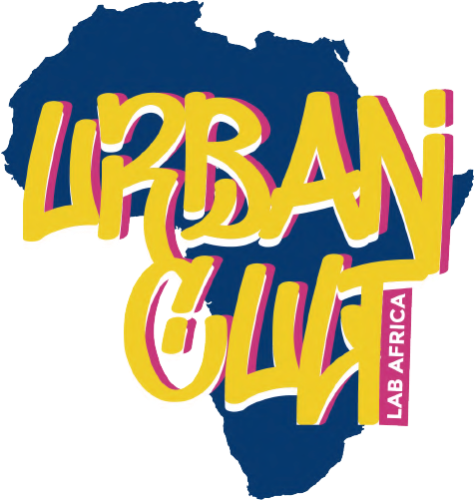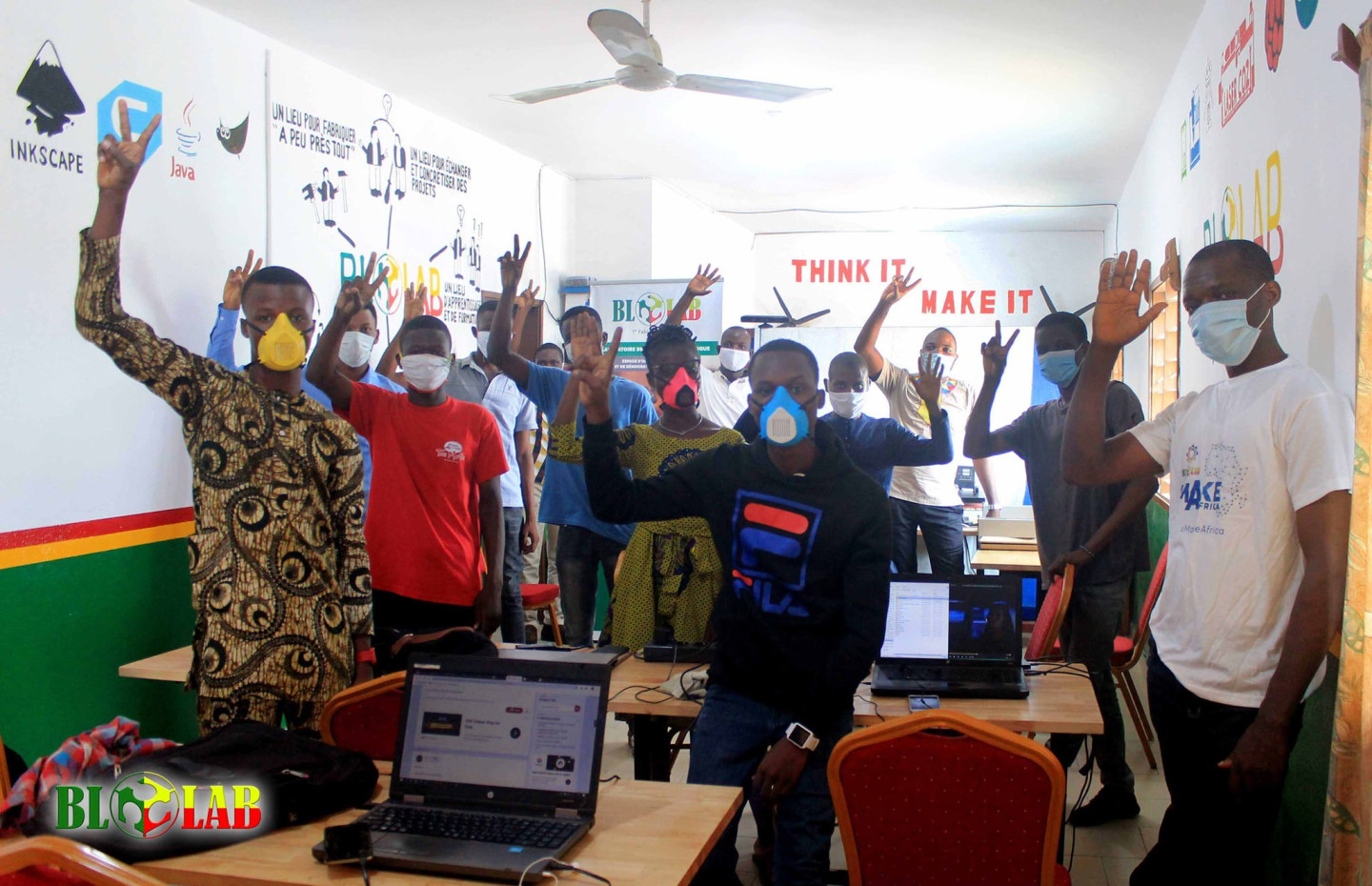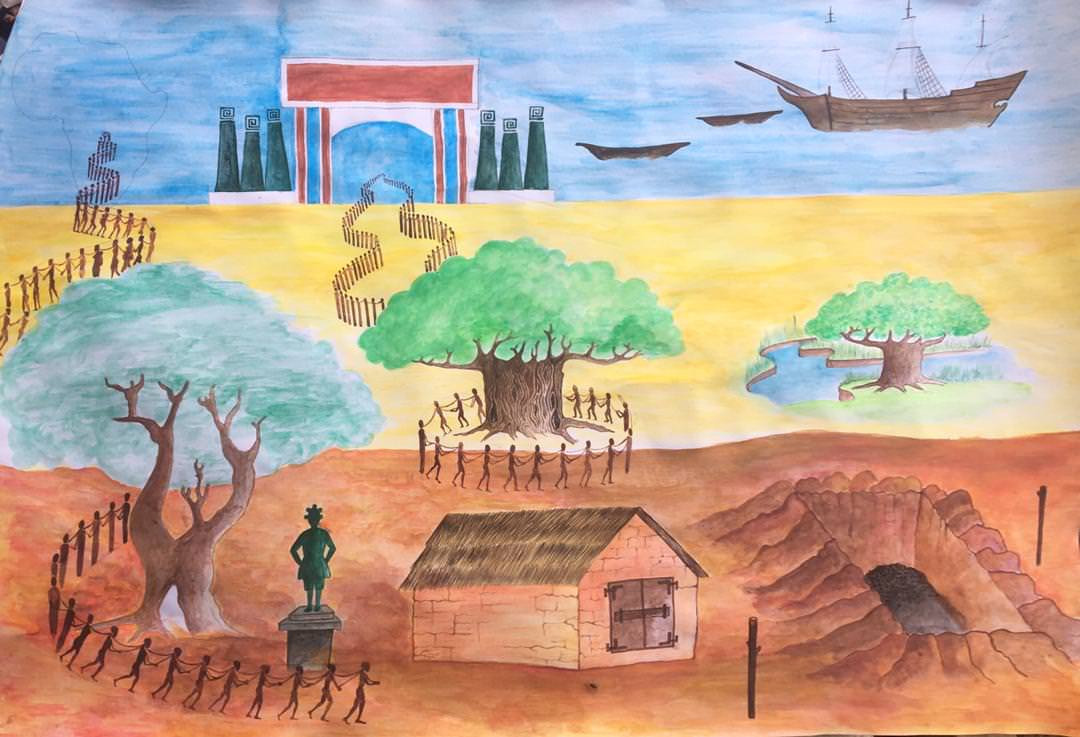The Urban Cult Lab’Africa has brought six fab labs – digital fabrication laboratories – in West Africa together to co-design cultural events including artists’ residencies, live events and exhibitions.
African urbanization brings together different cultures, languages, traditions and heritage. Urban Cult Lab’ Africa contributed to making this diversity an opportunity to avoid sources of tension and conflicts, and rather develop an alloy of skills and talents to develop solutions to urbanization questions.
Associating six fablabs - BloLab (Benin), OuagaLab (Burkina Faso), BabyLab (Ivory Coast), Donilab (Mali), Sahel FabLab (Mauritania) and Woelab (Togo) - the project was fuelled by strong regional collaborations and exchange across the fab labs in the area of digital innovation for education; makers and artists; and goods and services. Urban Cult Lab’Africa promoted social inclusion, encouraging the re-appropriation of urban spaces to make their creative programme visible to the broadest audiences possible.
Responding to Covid-19: "Mon pagne/mon masque"
The Covid-19 health crisis, which has affected the Urban Cult Lab'Africa countries with a number of measures and restrictions, led the project partners to identify actions that could usefully contribute to the response to the epidemic in the different countries involved. The project partners responded to the crisis by establishing a Young Healthcare Volunteers corps, a team of volunteers stemming from the Amnesty International Bénin (AI Bénin) network of school clubs in 40 colleges and high schools in the country. They worked in cooperation with the focal points of the Health Committees for reinforcing healthcare awareness and self-protection capacity of the communities through education and sensibilisation actions.
Urban Cult Lab'Africa has made it possible to strengthen the capacities of 120 young people from local high schools and colleges on the awareness of Covid-19 and communication techniques, both with their peers and members of their community.
Dieudonné Dagbeto, Amnesty international
The fablabs in the different countries participated in the implementation of the project by creating protection masks and face shields via 3-D printing techniques, with a double function: protection and communication on the actions to take against the virus as well promoting an aesthetic and innovation reflection on the con-cepts of original locally produced masks.
Music Lab'Africa
The laboratory Music Lab'Africa was a digital inclusion project focusing on the music industry in all partner countries. The project aimed to make African musical richness accessible to a population generally detached from cultural offer, by:
- constructing a digital base of traditional African rhythms (across all Urban Cult Lab’Africa partner countries);
- contributing to contemporary musical creation by organising a residency for African and European artists;
- organising computer-assisted music and mapping / VJ-ing workshops with young audiences;
- focusing on enhaned participation of female artists and emerging talents in proposed activities;
- wide dissemination through cultural events and digital uses.
The Institut français in Benin and the cultural centre Africa Sound City, partner of the project, have hosted a co-creation laboratory in residence for African, European and Caribbean artists to support the formation and mixing of sounds and images thanks to the contributions of digital technology.
The educational and didactic workshops were primarily intended for young audiences. They allowed to welcome around forty participants around two approaches: a musical practice workshop, between tradition and modernity, on rhythms of the drums of Benin and Martinique; and two workshops for middle and high school students on digital techniques for recording and processing image and sound.
All activities have been recorded and were made available on a digital platform as well as a mobile application, in April 2021. Performances were also planned in the different countries concerned.
Mémoire Lab'Africa
The laboratory Mémoire Lab'Africa allowed the creation of a digital fresco on the memory of slavery in the Gulf of Guinea in all partner countries of Urban Cult Lab’Africa, including:
- Digital, audio and video recording of testimonies from historians to understand the history of slavery the Gulf of Guinea;
- The contribution of university research to understanding historical facts for the methodological approach;
- Processing of information collected for the creation of a dedicated digital platform;
- The design of a mediation tool from a digital fresco established in partnership with historians and international experts.
Supported by Delegation Wallonie-Bruxelles in Benin, two students from the National Institute of Crafts, Archeology and Culture of Benin were mobilized to support the creation process and the design of the fresco. The other fablabs in the region took ownership of the project and adapting it to the reality of their territory by producing their own version with the same method. The work lead to the design of a large fresco allowing the public to immerse themselves in a sound and visual universe which gave them access to the symbolic places of the memory of slavery in the city of Ouidah. The process is carried out in parallel with the other partners of the project in the region, to be multiplied in their respective countries by adapting it to the context of their history and territory.
The project has fostered rapprochement between the fields of culture and digital technology. In particular, it has made it possible to promote intangible musical and memorial heritage of several African countries.
Gérald Brun, Institut français du Benin
This fresco has been on display from April in the premises of the Institut français in Benin and can be exhibited on a traveling basis in partner institutes in the region – in particular those present in the partner countries. A dedicated digital platform, still in the process of being finalised, will allow to have remote access to the fresco and the multimedial contributions.
Urban Cult Lab'Africa as European Space of Culture
The selection committee saw potential in the project as model for socio-cultural collaborative innovation that are relevant to a local and global context. To utilise and mobilise a strong West African network through Fablabs - which is interdisciplinary by nature - together with other local stakeholders was seen as one of the winning strengths of the project.
The committee found significant potential in creating successful cross-border collaborations, ideas and models in the region, especially by using currently marginalized spaces. Focus is not only through art but also potentially through traditional and local tech and science. It strongly addresses a relevant need as well as having potential appeal and outreach to youth and students, not just artists/entrepreneurs or cultural producers.
Model of collaboration
The partnership has potential as model for collaborative innovation that is relevant to a local and regional context. To utilise and mobilise an existing and strong West-African network through the fab labs - which is interdisciplinary by nature - together with other local stakeholders and connection to European (governmental) organisations offers opportunities for creating successful cross-border collaborations, ideas and models in the region, especially by using currently marginalized spaces.



